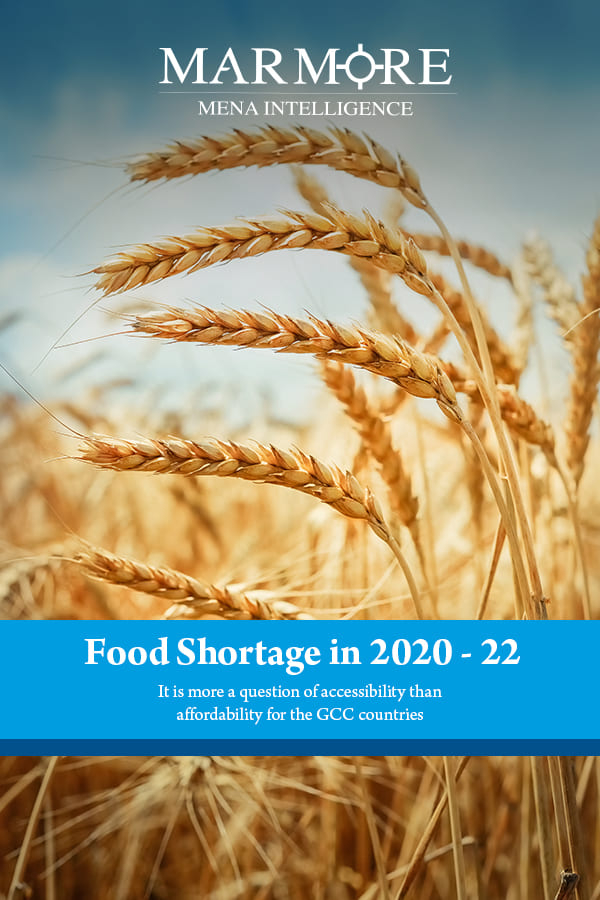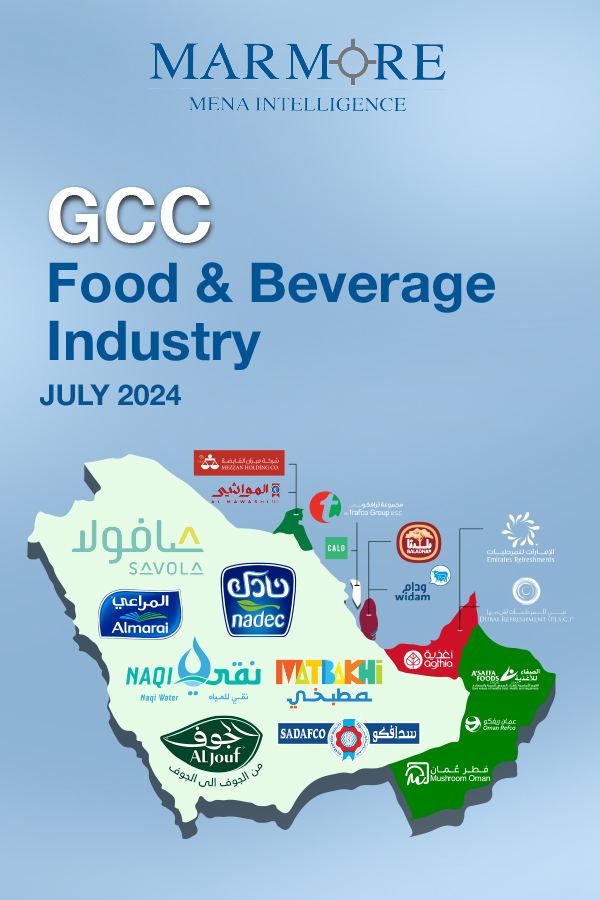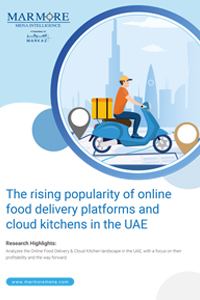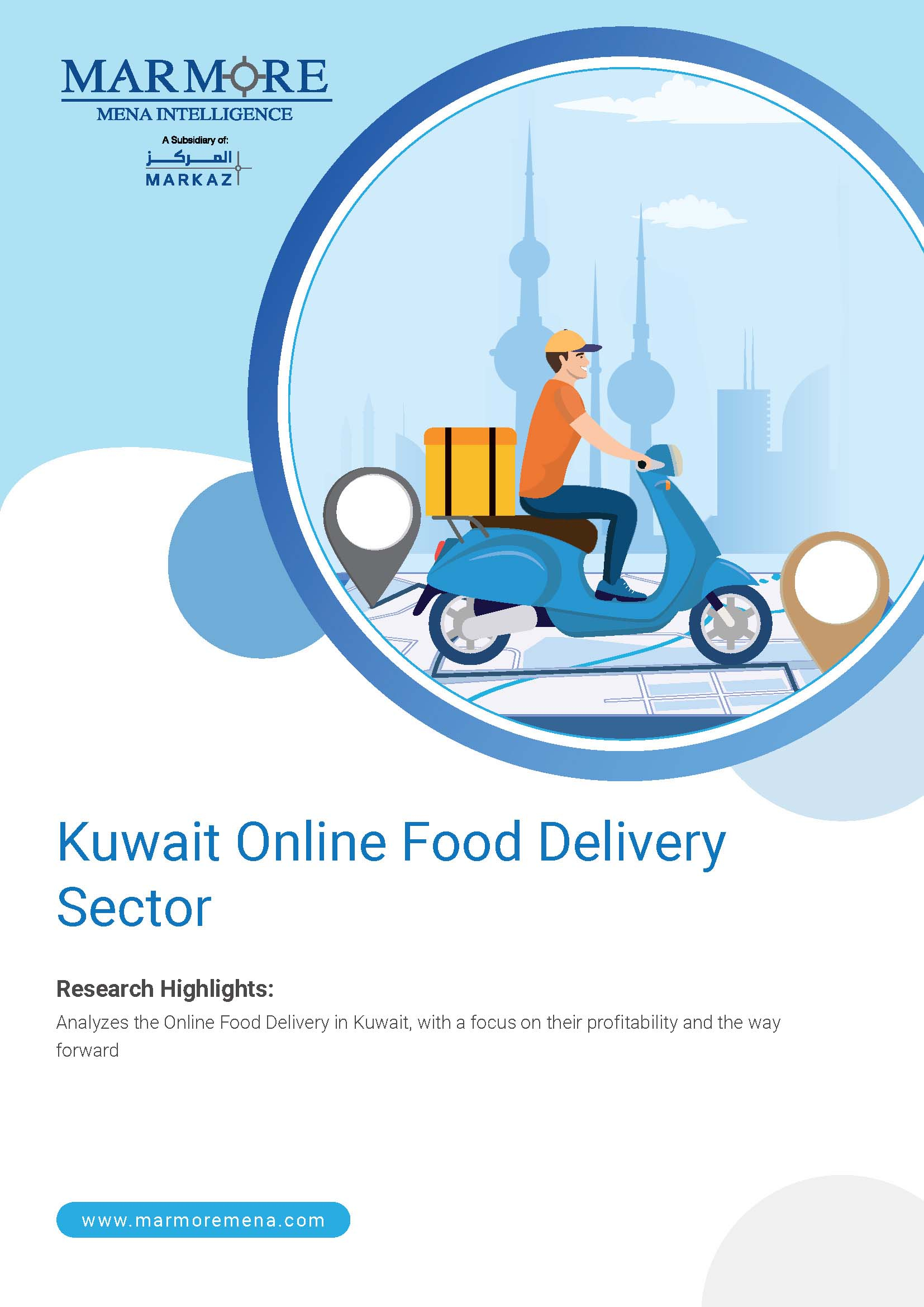Executive Summary
- The food supply chain during the COVID pandemic was significantly affected, including shortage of harvest staff, transportation difficulties due to border restrictions, reduced operations due to containment measures, and pent-up demand, which all led to imported inflation. The Geopolitical tensions in Russia – Ukraine resulted in an export decline from Ukraine, falling steeply from 5 – 7 mmt per month before the war to an average of 3.5 mmt per month.
- Freight costs experienced a significant surge, increasing by seven-fold in the 18 months following the pandemic, which can be attributed to shipping and logistical restrictions. Uncertainty over the Black Sea Grain Initiative had led to soaring prices of cereals.
- GCC countries faced high food inflation levels, especially in Saudi Arabia where the food inflation peaked at 14.3% y/y in July 2020. Food inflation in Kuwait had also elevated to 7.46% y/y in March 2023, accelerating quickly since the beginning of the period.
- UAE and Saudi Arabia have started implementing certain long-term strategies such as achieving self-sufficiency in production of key products such as wheat and using argi-tech to boost local production.
- Kuwait can try to diversify its sources of imports and promote local production of certain agricultural products by using technology. These strategies would help to mitigate risks of food supply chain disruptions and higher inflation owing to rising food prices.





